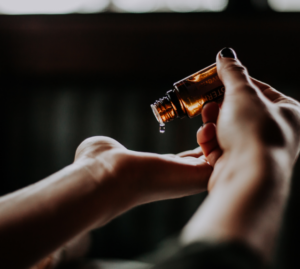There’s been a lot of talk about retinoids and how it is the gold standard for skin care. But what is it really and what does it do? We explore the differences among retinoids including retinol, retinal, and Retin-A. What are some of our staff’s favorites along with tips and tricks!
What are retinoids?
Retinoids are a vitamin A derivative. Studies show that Vitamin A found in Retin-A, Retinal, and Retinol can reduce the appearance of fine lines, wrinkles, and pigmentation after just 12 weeks of use.
They increase skin cell turnover, reduce skin cell debris that clogs up pores, increase collagen production, and decrease discoloration. It is no wonder they are the holy grail ingredient for skin care products! It sounds almost too good to be true so what are the differences?
The simple answer: It is about potency and strength!
Concentration or potency is what makes one retinoid over-the-counter and one prescription. Their main difference is the speed in which they yield results. This is also why you will find products such as SkinMedica Retinol Complex in 0.25, 0.5, and 1.0.
The number behind the product indicates concentration. Just because a product will produce results faster, it does not mean you should apply generously and hope for the best! Retinoids, unfortunately, do not work this way. There is more to it than you think!

The long answer: Okay, so what are the real differences?
Retin-A is an FDA-approved prescription topical retinoid. Retin-A is the brand name and has an active ingredient – tretinoin. We’ll be referring to Retin-A as tretinoin moving forward as it is the actual name and ingredient (think of it as the company name Chapstick vs. what it actually is, which is lip balm).
Tretinoin can be used for anti-aging or in its higher concentration, for acne. Either way, a valid prescription is required for purchase as tretinoin has aggressive side effects such as excessive dry skin, skin peeling, irritation, and burning.
We carry Obagi Tretinoin Cream in three strengths. While this sounds like the miracle worker, know that some people have sensitive skin and do not react well to this high strength cream. Please consult with our SkinSolutions.MD’s doctors and nurse practitioners to determine if this is the right treatment for you and prescription if approved.

Retinal is the closest thing you can get to prescription-strength vitamin A or tretinoin. If you do have sensitive skin, this could be the next best thing. Retinal is the only retinoid that contains direct antibacterial properties. It is perfect for those prone to blemishes. With continued use, it can help diminish the bacteria responsible for breakouts.
Retinol is the #1 dermatologist-recommended skin anti-aging ingredient. You can get all the benefits of cell regeneration, collagen production, and more without extreme irritation or prescription. The only con is that it takes a bit longer to see results, but at the same time, you most likely won’t experience the irritation that comes with a prescription-strength retinoid.
Prescription grade vs. over the counter
If you want quicker results, the prescription-only tretinoin is the way to go. There is no better time than to start this regime if you plan on quarantining or staying indoors away from the sun and people seeing your skin peeling. You’re going to see results faster, but be aware, the irritation does last for about four to six weeks.
For patients who are highly sensitive to tretinoins or just looking to boost their skin care routine, retinol is a great choice. You can start at a lower concentration and move up to see how your skin reacts.
Sometimes consistency is really all you need. Some patients who keep up with their retinol use feel that they do not need to increase strength at all.
The bottom line is that you will have results either way! Just be mindful and patient with your skin as it is healing from the inside out! If one retinoid does not work for you, try another brand or concentration. We carry many different ones from Obagi to SkinCeuticals to SkinMedica.

Our Favorites and Why They Love It
- Obagi Tretinoin 0.05% Cream 0.7 oz – “It’s prescription and it works. In 4 weeks I already saw such a brighter complexion with my hyperpigmentation.” – Abby W., 43.
- SkinCeuticals Retinol 0.5 – “I am loyal to SkinCeuticals so when I heard they had retinol I had to try it. My skin has been brighter, clearer and healthier!” – Sara H., 50.
- SkinMedica Retinol Complex 0.5 – “I’ve been using this for about 2 years. I never switched over to 1.0 as 0.5 is perfect helping me keep fine lines, wrinkles and acne away!” – Jessica M., 31.
Tips and Tricks for Retinoids
- Minimize exposure to the sun and use a sunscreen with SPF 15 or higher if you are going outside.
- Avoid washing your skin too often, scrubbing the affected skin, or using other products with a drying effect.
- Start by applying it every other day or night. Start with the lowest concentration first and see how your skin reacts before moving to higher concentrations.
- Those with rosacea or eczema should consult a healthcare provider.
- Stop using any kind of retinoids if you are pregnant or breastfeeding, think you are pregnant, or plan to become pregnant or to breastfeed.
Bottom Line
Learn more about retinoids and other topical solutions for wrinkles, fine lines, and clear skin with us on Instagram or book a free video or private chat consultation with our skin expert and Ask An Esthetician there. We’re always here and happy to help!


